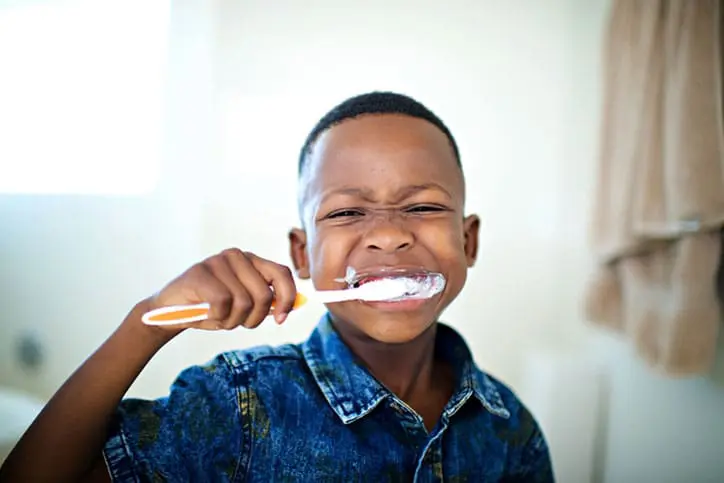Children rely on their parents for all forms of hygiene until they reach a certain age. This is a big milestone for families because it marks a moment of independence. Is your child ready to brush teeth alone? What age should children start brushing their own teeth? Read on to learn more.
Children Should Start Brushing Alone between 6 and 9
Most children should be able to brush their own teeth between the ages of 6 and 9. This is when children have the dexterity to handle the task and the maturity to understand instructions. You may still need to guide your child through the process for several months, but you can start transitioning to solo brushing around this time.
With regards to when you should start brushing your child’s teeth, you can actually start before the teeth come in. Clean your infant’s gums with a soft cloth and water to get them used to the feeling of cleaning their mouth. As your child’s teeth come in, you can switch to a finger brush or a soft bristled toothbrush for children. Learn more: How to Care for Baby Teeth and Gums
Signs Your Child Is Ready to Start Brushing Their Own Teeth
Here are some indicators your child may be ready to brush their own teeth:
- Your child is responsible for getting themselves ready in the morning. If you can trust your child to get themselves dressed and complete basic morning prep, you can probably start the transition to solo brushing.
- Your child has the dexterity to tie their shoes and hold eating utensils. These are the same basic muscle movements needed for brushing teeth.
- Your child can stay focused on a task for at least 3 minutes. Brushing teeth should take 2 minutes, plus time for flossing, rinsing and cleaning up.
- Your child can follow basic instructions. Even if you have to coach your child through teeth brushing, you can start explaining that process to them.
- Your child has expressed interest in brushing their own teeth. If your child wants that independence, give it to them! You’ll still want to check their techniques and assist where possible, but ultimately, you want your kids to feel confident about oral hygiene.
Why Oral Health Is So Important for Kids
According to the CDC, 20% of children between the ages of 5 and 11 have some form of untreated tooth decay. This can impact a child’s ability to speak, eat and learn, and it can increase dentistry expenses over time. Poor oral health has been linked to poor performance in school, largely due to missed school days and low confidence. Giving your child the confidence to clean and brush their own teeth sets the path toward a better quality of life later on.
How to Transition to Solo Brushing
Each child’s transition is slightly unique because every child learns differently. Your child may enjoy making tooth brushing into a game, or you may have your child do a partial brush with a follow-up from you. Most parents transition their child to solo brushing, but they still tackle the flossing for a little while longer. Flossing takes some extra skills and patience that your child may not have at first.
Dr. Sadikoff can give you personalized tips for teeth brushing during your pediatric dentist appointments. Contact us at (586) 949-5363 to schedule your child’s next oral exam.











